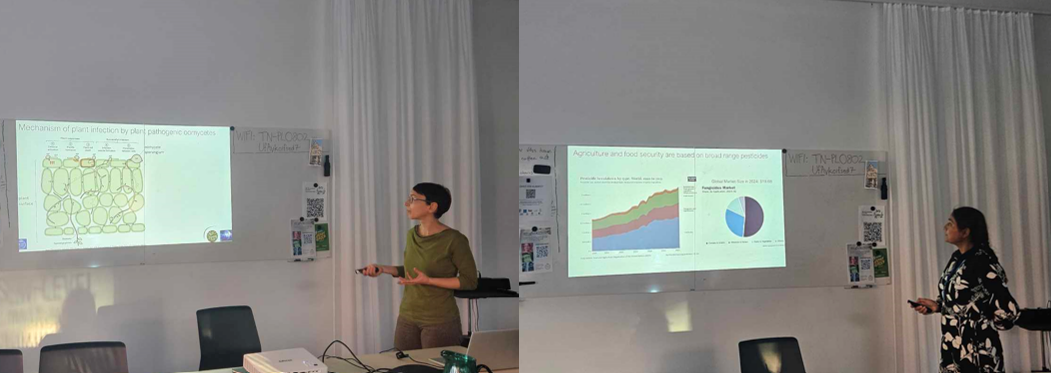Sadia Ullah och Lisa Kappel om att minska utmaningar med patogenkontroll inom industriellt jordbruk

Publicerad 2025-01-14
Den 10 december höll KTH Food årets sista lunchseminarium, där postdoktorerna Lisa Kappel och Sadia Ullah presenterade sin forskning. Seminariet handlade om att minska bördan kopplad till patogener med hjälp av nya bekämpningsstrategier inom industriellt jordbruk, samt insikter från det EU-finansierade NoPest-projektet som nyligen avslutats.
Läs artikeln i sin helhet på engelska här .
